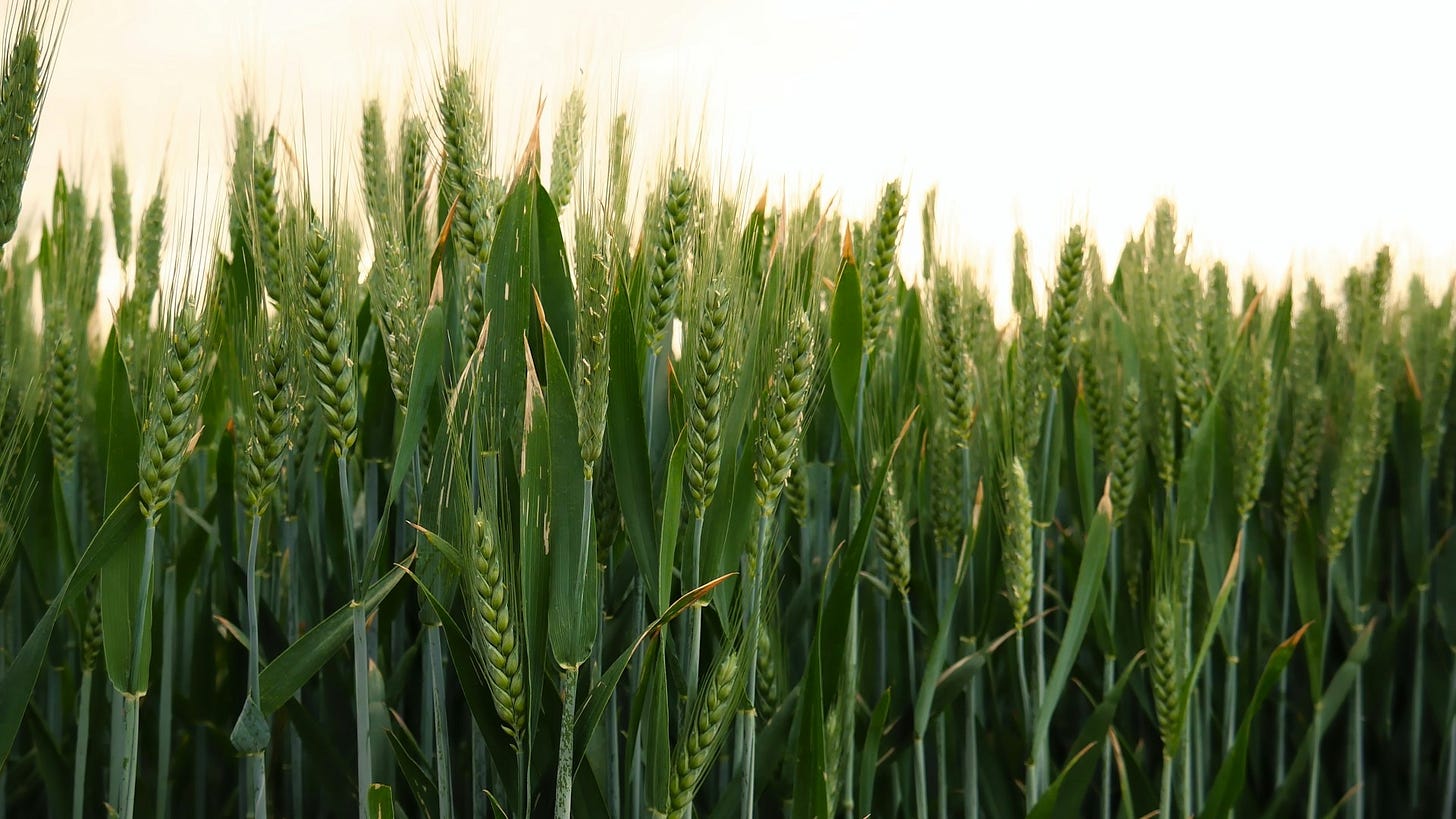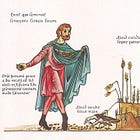What makes for good soil in Christ’s Parable of the Sower?
Christ's Parable shows us the conditions for receiving the Word of God and yielding fruit.

Christ's Parable shows us the conditions for receiving the Word of God and yielding fruit.
Editor’s Notes
Our Lord told the Parable of the Sower, read on Sexagesima Sunday, early in His public ministry, as He began to teach in parables more frequently. It is the first recorded parable in the Gospels.
It follows growing opposition from the Pharisees and the rejection of His teachings by many, prompting His shift to parabolic instruction.
Shortly after, He explained the meaning of this and other parables to His disciples, emphasising the mysteries of the Kingdom of God. He also explained that he was using this manner of teaching both to reveal truths to those who are disposed to receive them and to conceal them from the hardened-hearted.
In this piece, Fr. Coleridge tells us…
How the good soil represents those who hear, receive, and persevere in the Word of God.
That grace bears fruit in different degrees, depending on the soul’s response and cooperation.
Why the trials of life are not obstacles but the means by which faith is perfected.
… and he shows us that holiness is not uniform, but varies according to God’s providence and our generosity.
The Parable of the Sower
The Training of the Apostles, Vol. III
Chapter VIII
St. Matt. xiii. 18–23; St. Mark iv. 10–25; St. Luke viii. 9–18;
Story of the Gospels, § 61
Burns and Oates, London, 1884
Headings and some line breaks added.
Sung on Sexagesima Sunday
Part I: How does the Parable of the Sower unlock all Christ's other parables?
Part II: How do the birds reveal a brutal war for the soul in the Parable of the Sower?
Part III: What if your faith is shallow, and you won’t know until it’s too late?
Part IV: What makes for good soil in Christ’s Parable of the Sower?
The good ground
Finally, our Lord turns to the other side of the picture, the side which was to His Sacred Heart the one sufficient consolation for all the disappointments of which He has before spoken.
‘These are they who are sown on the good ground, who hear the Word and receive and understand it and keep it, and bring forth fruit in patience, and yield the one thirty, another sixty, and another a hundred.’
The circumstances which are here mentioned with regard to the good soil seem to be selected with reference to the other instances already mentioned in which the seed has not been fruitful.
To hear the Word, to receive and to understand it, is just what has not been the case with the first class of the careless and inattentive hearers, out of whose hearts it is the office of Satan to snatch the Word before it has a chance of becoming fruitful.
Those who receive it and bear fruit, and those who are said to keep it and receive it, as St. Luke puts the words, ‘in a good and very good heart,’ are those in whom there are not that shallowness and want of solidity which are figured in the stony soil, nor those external hindrances to fruitfulness which are to be found in the ground in which the briars and thorns spring up alongside of the grain.
Degrees of fertility
And again, beyond this distinction between the good soil and the bad, there is in the language of our Lord a very clear indication of the great variety of degrees in which the fertility of the good soil, as such, shows itself.
For He says that one yields thirty, another sixty, and another a hundred-fold, and that all these bear fruit in patience, that is, under the discipline and exercise of affliction and of the cross.
It is clear that every word of this parable is meant to have its design, meaning, and importance, and that, short as it is, it is intended to sketch for us to all time the variety of the results of grace, and especially of the apostolic preaching of the Word.
In the case of the fertility of the seed to which the Word of God is compared, it may be said that there is difference between seed and seed, not that all is not seed, but that one grain may have a more rich power of fructification than another, and in the same way, there may be differences even between one portion of earth and another, as to richness and fertility, and there may also be differences between the advantages of rain and sun and air, and the like external helps, in one case and in another.
In the same way it may be with the souls of which our Lord speaks. The Word of God may fall on one favoured soul with an extraordinary power of light and influence, for God is not bound to give to all equally, but to all sufficiently. On the other hand, there may be differences in the readiness of the will, in the thorough generosity with which the soul surrenders itself to the influences of grace, or the vigour and energy which it applies to the cultivation in itself of what it has received.
And again, there may be differences in the external conditions under which various souls correspond to the graces which they have received, conditions which depend on the good providence of God, as when one person has the advantage of living in the company of a saint, or in a home where every evil influence is carefully shut out, or where there are greater opportunities of profiting by the common means of grace, the sacraments of the Church, the preaching of the Word, and the like.
In all these ways one good soul may have greater opportunities or greater faithfulness than another, and thus it is that the Kingdom of God is to be adorned by the fruits and flowers of sanctity not only in various kinds, but also in various degrees within the same kind.
Following his explanation of this parable, Coleridge proceeds to explain the Parable of the Cockle amid the Wheat. See more here:
The Parable of the Sower
Part I: How does the Parable of the Sower unlock all Christ's other parables?
Part II: How do the birds reveal a brutal war for the soul in the Parable of the Sower?
Part III: What if your faith is shallow, and you won’t know until it’s too late?
Part IV: What makes for good soil in Christ’s Parable of the Sower?
Here’s why you should subscribe to The Father Coleridge Reader and share with others:
Fr Coleridge provides solid explanations of the entirety of the Gospel
His work is full of doctrine and piety, and is highly credible
He gives a clear trajectory of the life of Christ, its drama and all its stages—increasing our appreciation and admiration for the God-Man.
If more Catholics knew about works like Coleridge’s, then other works based on sentimentality and dubious private revelations would be much less attractive.
But sourcing and curating the texts, cleaning up scans, and editing them for online reading is a labour of love, and takes a lot of time.
Will you lend us a hand and hit subscribe?
Read next:
Follow our projects on Twitter, YouTube and Telegram:








